#Adivasis
Quote
Savarnas often ask ‘would you go for treatment from a doctor who got medical seat using reservation?’ The whole narrative rests on testimonial injustice where the expertise of a DBA individual is discarded, despite having the degree and experience. Interestingly this argument will never be used for doctors who used EWS reservation or even paid management seats. The use of ‘Merit’ against reservation to undermine the intellect and capabilities of DBA community is the most popular example of epistemic injustice done on the community.
Pranav Jeevan, ‘Epistemic Injustice: Does Knowledge have Caste?’, Round Table India
#Round Table India#India#Pranav Jeevan#Savarnas#casteism#Dalits#Bahujans#Adivasis#EWS reservation#management quota#epistemic injustice#testimonial injustice#reservation
33 notes
·
View notes
Text
reminder that the name of india's first tribal president, and also the second female president, is Puti Tudu, and not Draupadi Murmu.
though her last name changed through marriage, her teachers had changed her first name in primary school because apparently they didn't like it.
the santhali tribe of odisha, which she comes from, has a custom of names not dying, which is why girls are given their grandmother's name and boys their grandfather's.
so congrats to india on our second female president, and our first ever adivasi president, Puti Tudu.
66 notes
·
View notes
Link
1 note
·
View note
Text
AIMIM chief Owaisi: 'If India belongs to anyone, it's Dravidians and Adivasis'
AIMIM chief Owaisi: ‘If India belongs to anyone, it’s Dravidians and Adivasis’
AIMIM chief Owaisi: ‘If India belongs to anyone, it’s Dravidians and Adivasis’
Bhiwandi (Maharashtra): AIMIM chief Asaduddin Owaisi on Saturday took a dig at the BJP and Rashtriya Swayamsevak Sangh (RSS), saying that it is “only after Mughals.”Addressing a rally in Maharashtra’s Bhiwandi, Asaduddin Owaisi said, “India is neither mine, nor Thackeray’s, nor (PM) Modi-Shah’s. If India belongs to…
View On WordPress
#&8216;dravidians&8217;#&8216;if#adivasis#aimim#and#anyone#belongs#chief#india#it&8217;s#news#owaisi
0 notes
Text
ಸಿಕ್ಕ ಸಿಕ್ಕವರನ್ನು ಬೈಯುವ,ಭಿಕ್ಷೆ ಬೇಡುವ ಆದಿವಾಸಿಗಳ ವಿಶಿಷ್ಟವಾದ ಹಬ್ಬ!!
ಸಿಕ್ಕ ಸಿಕ್ಕವರನ್ನು ಬೈಯುವ,ಭಿಕ್ಷೆ ಬೇಡುವ ಆದಿವಾಸಿಗಳ ವಿಶಿಷ್ಟವಾದ ಹಬ್ಬ!!
ಹುಣಸೂರು : ಆದಿವಾಸಿಗಳ ಪ್ರಮುಖ ಹಬ್ಬವನ್ನು ನಾಗರಹೊಳೆ ಉದ್ಯಾನವನದಂಚಿನ ವಿವಿಧ ಹಾಡಿ, ಗ್ರಾಮಗಳಲ್ಲಿ ಆಚರಿಸಿ ಕೊಡಗಿನ ದೇವಪುರದತ್ತ ತೆರಳಿದರು.
ಹುಣಸೂರು ತಾಲೂಕಿನ ಹನಗೋಡು ಹೋಬಳಿ ವ್ಯಾಪ್ತಿಯ ೩೫ಕ್ಕೂ ಹೆಚ್ಚು ಹಾಡಿಯ ಗಿರಿಜನರು ಸೊಂಟಕ್ಕೆ ಸೊಪ್ಪು ಹಳೇ ಹರಿದ ಬಟ್ಟೆ ಹಾಗೂ ಗೋಣಿ ಚೀಲಗಳಿಂದ ವಿವಿಧ ವೇಷಗಳನ್ನು ತೊಟ್ಟು, ಒಣಗಿದ ಸೋರೆಕಾಯಿ ಬುರುಡೆ, ಪ್ಲಾಸ್ಟಿಕ್ ಡಬ್ಬಿ ಹಾಗೂ ಟಿನ್ಗಳನ್ನು ಡೋಲಿನ ರೀತಿಯಲ್ಲಿ ಬಡಿಯುತಾ,ತಮಟೆ ಬಾರಿಸುತ್ತ್ತಾ ಆಕರ್ಷಕವಾಗಿ ಕುಣಿಯುತ್ತಾ, ಎದುರು…
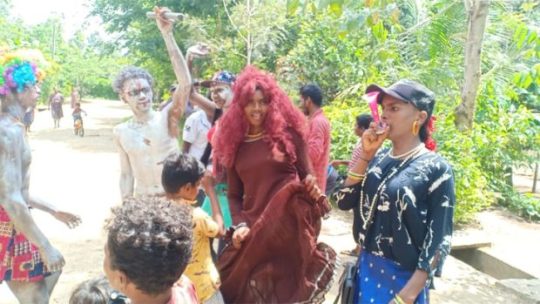
View On WordPress
0 notes
Text
something that hindutva types (and north indian supremacists generally, which are overlapping but not quite the same categories) get really angry about is whenever you mention that the people of the indus valley civilization were very probably actually dravidian-speaking "south indians" rather than indo-aryan-speaking "north indians" because indo-aryan speakers didn't exist/half of our ancestors hadn't migrated from the central asian steppe yet. bc indo-aryan speakers are descended from native dravidian-speakers and these central asian steppe peoples and they don't arrive to the region until the time of the vedas which happens much later. north indian supremacists refuse to believe that dravidians could have built the oldest civilization in the region bc it entirely contradicts the hindutva line about north indian hindus being the indigenous people of south asia. anytime this is mentioned hindutvas go fucking crazy like frothing rage it's wild. when u see stuff about hindutvas changing the history books to be more in line with hindutva ideology this is part of that
#not to mention that there are indigenous ppl in india (the adivasis) who are treated brutally#like the thing is if you have south asian ancestry you are probably descended from the indus valley people#but who gets to claim Direct descent or cultural descent or whatever is heavily politicized
75 notes
·
View notes
Text
Caste isn’t limited to our particular South Asian homeland, it migrates, too. Caste is embodied by all of us diasporic South Asians, regardless of ethnic, national, linguistic, religious, sexual, or political affiliation. Thus it is all of our responsibility to interrogate our privilege. For far too long we have watched caste re-emerge and settle in our new geographies. We have shied away from discussing caste in diaspora. And most importantly, we have let this silence allow South Asian diasporic movements to erase caste from their intersectional analysis. But this ends now.
For radical South Asians, this is the moment to include caste into your intersectional analysis. This is the time to begin the long, complicated conversation of taking caste into account. This is not a conversation that happens at the end of a meeting. This is not where having a Dalit friend gives you a free pass not to recognize your own caste privilege. And if this article makes you feel like this is not meant for you because you are not a Brahmin, then this article is especially for you. For caste has internal, interpersonal and institutional effects. And every caste is implicated in maintaining its hegemony. Yes, every caste. It is only when we actively challenge caste together that we have a chance to end it in our lifetime. But for this to happen, we need to name, see, and reckon it for what it is first.
It is only when we actively challenge caste together that we have a chance to end it in our lifetime.
Most importantly, it does not end just by simply reading this article — you have to commit to wrestle with these ideas and then put what you read into practice.
Dalits, Bahujans, and Adivasis have so far been the only ones to raise the issue of caste. Just because we bear the brunt of the violence of this system it does not mean it is only our problem. Caste is, in fact, a structural problem. Therefore, it needs structural solutions that are grounded in collective and inclusive actions to dismantle it. It is time that those who are Savarna, or Upper-caste, begin to learn to name and own their privilege and take on the burden of educating and dismantling caste in your own families and social networks. For the hardest work is to confront those that are closest and most intimate to you in your personal and professional lives. In fact, this is where really allyship begins. This is the point when complicated conversations begin. It starts when you become the uncomfortable voice laying bare the privilege to the social locations from where caste trickles down from: your friends, family, and professional colleagues. It begins when you break the silence of your own privilege.
—
🚨 want more materials like these? this resource was shared through BFP’s discord server! everyday, dozens of links and files are requested and offered by youth around the world! and every sunday, these youth get together for virtual teach-ins. if you’re interested in learning more, join us! link in our bio! 🚨
#resources#caste#anti casteism#casteism#privilege#intersectionality#diaspora#indigenous#dalit#bahujan#adivasi
22 notes
·
View notes
Text

Mahasweta Devi, inaugural speech at the Frankfurt Book Fair on the occasion of India becoming the first country to be invited as the chief guest for the second time, 2006.
text id: [ …my country; torn, tattered, proud, beautiful, hot, humid, cold, sandy, shining India. My country. ]
#mahasweta devi#desi tumblr#desi academia#nerd stuff#poetry tumblr#desi culture#literature#desi literature#dalit rights#adivasi#india#indian#booksbooksbooks#social activism#human rights#women's rights#labor rights
8 notes
·
View notes
Text
Shame on Britishers and Muslims for teaching us patriarchy and discrimination
#did you know that in ancient india whenever that was everyone was sexually liberated and there was an open society where when you came out#your parents gave you a party and the king would visit you and donate to you a piece of land#and nobody was ever oppressed and the adivasis were never stripped of their land they willingly gave it up for the Hindu brothers and siste#and there was no such thing as caste system and inter caste marriage was totally supported... NO NO NO don't look at the manusmriti... and#women were never married off at the age of 14 I TOLD YOU DO NOT LOOK AT THE MANUSMRITI#sorry this all sounded hilarious in my head tumblr is dead and not going to lie the pride in forseeing all of this fades away when you#so yeah
10 notes
·
View notes
Quote
When knowledge becomes an exclusive product under savarna domination, it creates an unjust system of power hierarchy where knowledge produced and communicated by DBA communities are either discarded or delegitimized without a second thought. The injustice done to a person in their capacity as a knower (producer and communicator of knowledge) is called Epistemic Injustice. This is a concept in social epistemology that refers to the unfair distribution of knowledge, credibility, or intellectual resources when someone is denied access to knowledge or is not believed, despite having relevant knowledge or expertise, because of their social identity, such as their race, caste, gender, class, or disability. The term was coined by a British philosopher, Miranda Fricker.
Pranav Jeevan, ‘Epistemic Injustice: Does Knowledge have Caste?’, Round Table India
#Round Table India#Pranav Jeevan#knowledge#power hierarchy#savarna domination#casteism#Dalits#Bahujans#Adivasis#DBA communities#Epistemic Injustice#epistemology#Miranda Fricker#India
23 notes
·
View notes
Text
youtube
recorded in 2017, this is a video interview with fr. stan swamy on the issues adivasi communities in jharkhand face, especially for anyone unfamiliar with the general landscape of the fight for land rights of tribal/indigenous people in india.
13 notes
·
View notes
Text


Marcus Leatherdale -Adivasi 2001
13 notes
·
View notes
Text
just when will this country stop bootlicking for isr*el ffs

#this is why i said we shouldn't stop at praising the union workers because the government doesn't fucking care about this#why do you think they are accepting exported weapons from isr*el... bc that aids in their genocide against kashmiris and adivasis#fucking tired of this fascist ass government i hope m*di fucking dies a painful death
4 notes
·
View notes
Text
Jai Bhim (2021) Stills Part 2
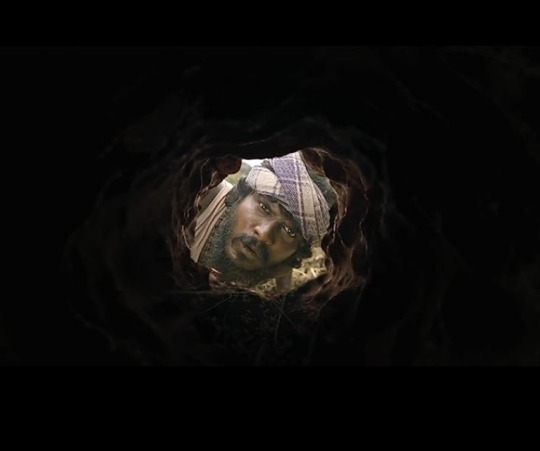


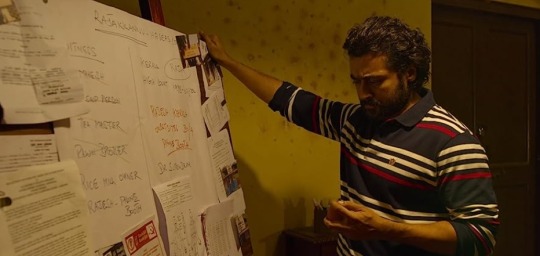
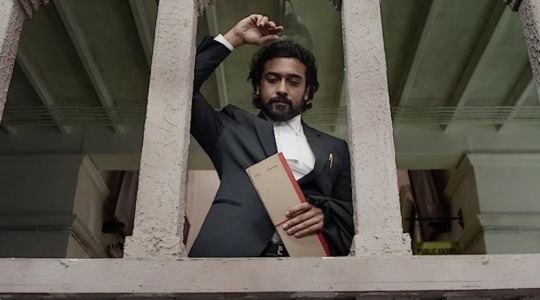
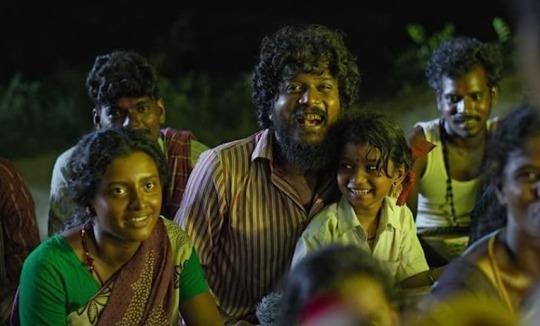

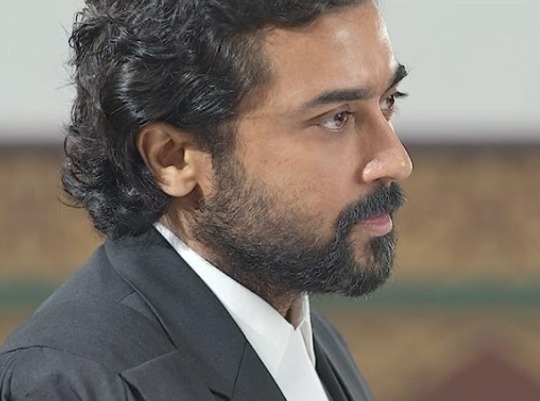
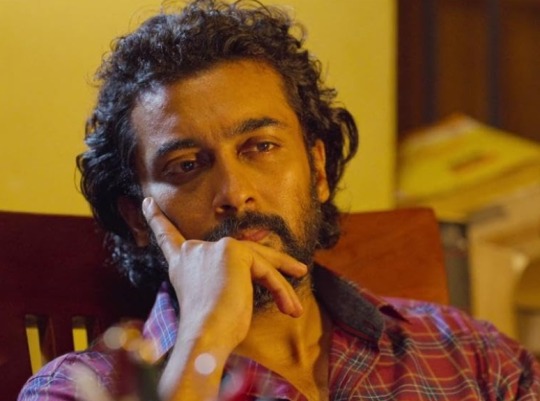
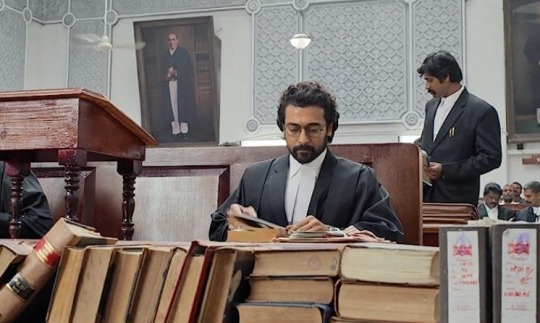
#kollywood#tamil#suriya#jai bhim#k manikandan#rajakannu#lijomol jose#sengeni#casteism#adivasi rights
9 notes
·
View notes